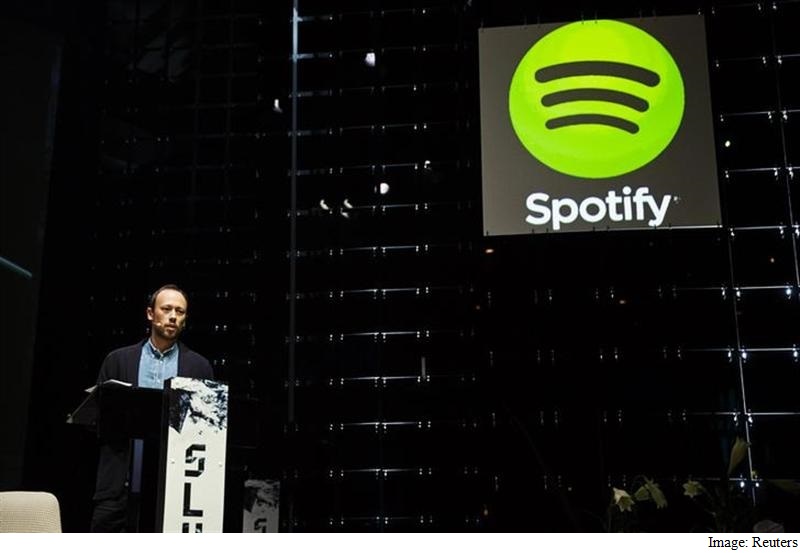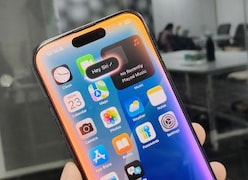- Home
- Entertainment
- Entertainment Features
- What Makes Spotify, Tidal and Apple Music Think Original Programming Will Win Over Subscribers?
What Makes Spotify, Tidal and Apple Music Think Original Programming Will Win Over Subscribers?

Last week, Spotify became the latest music-streaming service to announce an original video programming lineup, joining Apple Music and Tidal in the battle to get more people to their platforms. But despite the current popularity of video, some industry experts doubt the investment is worth it for these music streaming services.
Wooing more paid subscribers to turn a profit has been an ongoing challenge for some music-streaming companies. Standalone music-streaming services have struggled to achieve profitability, said Larry Miller, director of the Steinhardt School's music business program at New York University. Although many have expected Spotify to go public, it might be a risky move given its inability to turn a profit. In 2014, Spotify's revenues grew to around $1.3 billion (roughly Rs. 8,765 crores), but its losses swelled to approximately $197 million (roughly Rs. 1,328 crores), according to the Guardian. The market has also not been kind to Pandora, the online radio business that had its initial public offering in 2011. This week, investor Keith Meister called for Pandora to explore a sale given its falling share prices.
Video won't be the savior for these companies, said George Howard, an associate professor of music business at Berklee College of Music. Listeners' reliance on YouTube, which has 1 billion users, for free music and videos is one reason why Howard isn't entirely convinced streaming services will find financial success with video.
"These companies think, 'If we can't generate a sustainable business on music streaming alone, let's do video,'" Howard said. "It's one of those gambits that is a group think. It seems very desperate to me."
When users open a music streaming app on their phone, their first instinct is to play a song or playlist, Howard explained. Why, in the middle of a run or while working, would a user start watching videos on their phone?
"People's default for video right now certainly isn't Spotify," Howard said, "or at least it's not their starting point."
Tom Calderone, Spotify's content partnerships chief and former VH1 president, recently admitted to Bloomberg that the company still has "a ways to go" when it comes to getting users to watch rather than just listen. Today's Spotify app hides videos "down there with how to unsubscribe and the privacy policy," Calderone joked.
Trying new tactics such as original programming could help streaming companies build stronger individual identities with users and distinguish themselves from one another. Despite having some exclusivity with artists' new releases - initially, you could only stream Drake's "Views" on Apple Music or see Beyoncé's "LEMONADE" on Tidal - these services tend to share the same music catalogs. With original programming, users will be able to identify a specific series with its corresponding music-streaming service, just as "House of Cards" has become synonymous with Netflix and "Transparent" can only be found on Amazon.
"The only way that they have to compete is by way of price, features and exclusive content," Miller, the NYU music business director, said. "These exclusive series are one way - perhaps a small way - in which these people can differentiate themselves from the other services."
If users want to watch "Ultimate/Ultimate," a mockumentary series about an electronic dance music competition from Oscar-winner Tim Robbins, they will have no choice but to watch episodes on Spotify. If a six-part Vice Media docu-series about music scenes across the globe sounds appealing, a person will have to subscribe to Apple Music. Interested in seeing emerging comedians perform on a show hosted by DJ Cipha Sounds? Tidal is your only option.
The decision to develop original series is also a gamble for streaming services that rely heavily on the subscription model. If for some reason Apple's or Amazon's music streaming and original programming ventures failed, those companies would have entire ecosystems to fall back on. Apple can use its products to push users toward its services, just as Amazon can do with Prime or Alexa.
"It's almost not even a fair comparison," Miller said. "There is no question that the way licensing happens in the music industry . . . the companies that will survive and thrive are Amazon, Apple and Google."
© 2016 The Washington Post
Get your daily dose of tech news, reviews, and insights, in under 80 characters on Gadgets 360 Turbo. Connect with fellow tech lovers on our Forum. Follow us on X, Facebook, WhatsApp, Threads and Google News for instant updates. Catch all the action on our YouTube channel.
Related Stories
- Samsung Galaxy Unpacked 2025
- ChatGPT
- Redmi Note 14 Pro+
- iPhone 16
- Apple Vision Pro
- Oneplus 12
- OnePlus Nord CE 3 Lite 5G
- iPhone 13
- Xiaomi 14 Pro
- Oppo Find N3
- Tecno Spark Go (2023)
- Realme V30
- Best Phones Under 25000
- Samsung Galaxy S24 Series
- Cryptocurrency
- iQoo 12
- Samsung Galaxy S24 Ultra
- Giottus
- Samsung Galaxy Z Flip 5
- Apple 'Scary Fast'
- Housefull 5
- GoPro Hero 12 Black Review
- Invincible Season 2
- JioGlass
- HD Ready TV
- Laptop Under 50000
- Smartwatch Under 10000
- Latest Mobile Phones
- Compare Phones
- OPPO A6v 5G
- OPPO A6i+ 5G
- Realme 16 5G
- Redmi Turbo 5
- Redmi Turbo 5 Max
- Moto G77
- Moto G67
- Realme P4 Power 5G
- HP HyperX Omen 15
- Acer Chromebook 311 (2026)
- Lenovo Idea Tab Plus
- Realme Pad 3
- HMD Watch P1
- HMD Watch X1
- Haier H5E Series
- Acerpure Nitro Z Series 100-inch QLED TV
- Asus ROG Ally
- Nintendo Switch Lite
- Haier 1.6 Ton 5 Star Inverter Split AC (HSU19G-MZAID5BN-INV)
- Haier 1.6 Ton 5 Star Inverter Split AC (HSU19G-MZAIM5BN-INV)

















